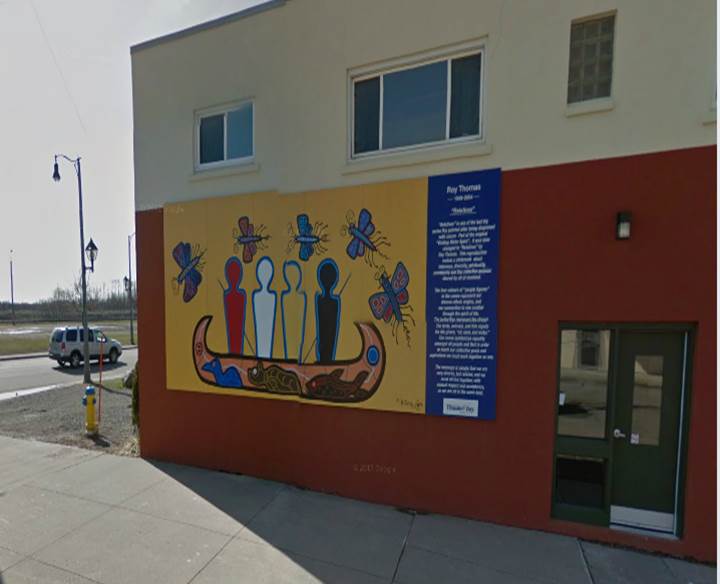Three people sit around a kitchen table; they chat, share a meal and enjoy warmth from the stove on a cold Ontario winter day. As they visit, someone approaches the group to remind them: it’s time for their dose of alcohol.
A year ago these three people would have lived outside in sub-zero temperatures, moved in and out of emergency shelters, and repeatedly be picked up by the police or emergency medical services. They were homeless and dependent on alcohol, often drinking heavily over a short time and consuming “non-beverage” alcohol like mouthwash, rubbing alcohol and hair spray. Today they have a place to call home and alcohol harm reduction support as participants in the Kwae Kii Win Managed Alcohol Program.

For the last few years, I’ve been part of a team studying Canadian Managed Alcohol Programs and their impacts on participants and communities. Most discussions about harm reduction focus on health measures for people who inject or smoke illicit drugs, but we can use the same harm-reduction principles to help people addicted to alcohol. Many emergency shelters do not allow people to drink or have alcohol with them, so for those addicted to alcohol and without housing, the only option may be to stay outside. Managed Alcohol Programs provide housing and small regular doses of “beverage” alcohol (usually white wine). This is enough alcohol so that people do not go into withdrawal, but not so much that they are intoxicated. The wine also replaces more harmful kinds of alcohol like rubbing alcohol. The primary goal is to improve the welfare of participants, but some programs also try to reduce emergency health and policing costs by reducing need for these services among participants.
When I first heard about Managed Alcohol Programs, I wondered, “Why would anyone give alcohol to alcoholics?”
Actually, the idea is not to give people more alcohol, but to change how they consume alcohol so that it’s consumed in safer ways. The intention is to replace the existing unsafe drinking (in public, in the cold, large amounts at a time, unsafe kinds of alcohol) with safer drinking (inside in their own homes, under medical supervision, much smaller amounts at a time), and not to increase the overall amount of alcohol.
You may be wondering, “If drinking is so bad for you, why can’t people just stop drinking?”
People in Managed Alcohol Programs have all tried, repeatedly and without success, to stop drinking, sometimes undergoing many rounds of detox and treatment. Many times, it seems, people are drinking to cope with traumatic events in their lives, and while that pain remains, drinking seems like the best option. Also, anyone who drinks a lot cannot stop suddenly without suffering significant medical problems like seizures. Managed Alcohol Programs, like other harm-reduction measures, provide a link to health services and can be a first step towards drinking less or quitting altogether if the participant decides that’s what they want.
Most significantly, though, Managed Alcohol Programs provide a safer place for people who are otherwise left without protection from the often gendered and racialized violence and trauma that characterize many people’s experiences of homelessness. As one Managed Alcohol Program participant put it, her family members know where to find her now and don’t have to wonder, when they read of the death of an Aboriginal woman in the paper, if that is her.
For more information about Managed Alcohol Programs, take a look at these links:
This new report highlights significant reductions in hospital admissions and time in police custody for participants once they start the program, as well as other benefits.
MAP Shelter House – Thunder Bay “The Value of Harm Reduction” https://www.youtube.com/watch?v=exaIP5TUZNw&feature=youtu.be
The Current interview: http://www.cbc.ca/thecurrent/episode/2014/01/06/harm-reduction-vs-abstinence-is-it-ok-to-give-an-alcoholic-a-drink/
Author: Kathleen Perkin, Research Manager, National Evaluation of Managed Alcohol Programs in Canada, Centre for Addictions Research of BC

